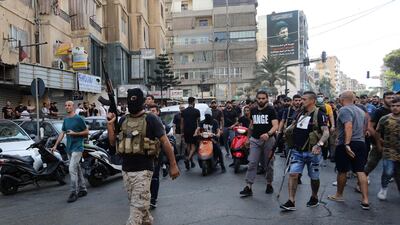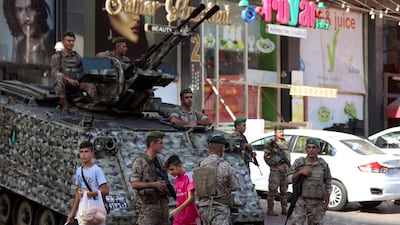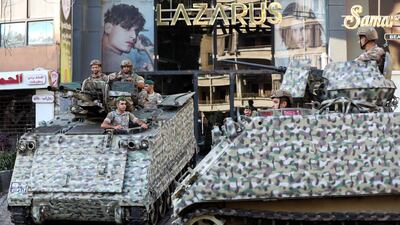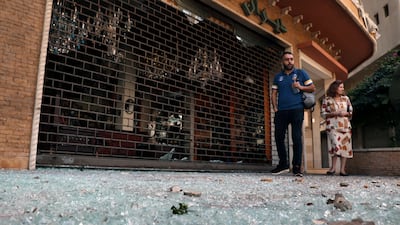Lebanon’s military court pressed charges against 68 people on Monday after deadly clashes earlier this month over the investigation into the Beirut port explosion.
Judge Fadi Akiki laid charges of “murder, attempted murder, inciting sectarian strife, possession of unlicensed military weapons, and sabotage of public and private property” against individuals allegedly involved in the clashes.
The 68 include 18 already detained. The clashes have come to be referred to as the “Tayouneh events” in a reference to the Beirut neighbourhood where they occurred.
Fighting erupted shortly after protesters gathered in front of the Justice Palace on October 14 to demand the removal of the judge investigating the Beirut blast in August last year. Tarek Bitar has been publicly accused by leading members of Iran-backed group Hezbollah of working against them.
Seven people were shot dead in an area that had separated Muslim and Christian neighbourhoods during Lebanon’s 1975-1990 civil war. Local media has reported that three were members of Hezbollah and another three were supporters of its local Shiite Muslim ally Amal.
The two political parties had initially called for the protest along with Christian political party Marada.
Samir Geagea, the head of rival Christian party the Lebanese Forces, has since traded accusations with Hezbollah over who started shooting first.
Lebanon has been awash with weapons since the end of the civil war, but Hezbollah was the only militia that was allowed to remain armed to continue fighting Israel, which occupied south Lebanon until 2000. The group has since developed into a powerful regional militia.
Two days before the October 14 shooting, Hezbollah and Amal ministers had threatened to boycott Cabinet sessions as long as Mr Bitar kept going after top politicians.
Top officials representing numerous political parties have so far evaded accountability in the probe into the blast, which killed more than 215 people last year, by filing multiple lawsuits against Mr Bitar, repeatedly interrupted his work.
Beirut courts have so far rejected attempts to remove the investigative judge, who is not allowed to speak to the media, but two lawsuits are pending at the Court of Cassation.
Since taking over the probe in February, Mr Bitar has charged more than 50 officials and issued an arrest warrant against prominent Amal member and former finance minister Ali Hassan Khalil, and former public works minister Youssef Fenianos, a Marada politician.
Both men failed to attend interrogation sessions.
Tensions between rival political parties rose again last weekend after President Michel Aoun refused to ratify politicians' decision to move parliamentary elections from March 27 to May 8.
The move had been supported by numerous parties including Amal, which is headed by veteran Parliament Speaker Nabih Berri.
In a press statement, Amal accused Mr Aoun’s political party, the Free Patriotic Movement, on Saturday of conspiring with the Lebanese Forces to cause the October 14 clashes in Tayouneh and of intervening in Mr Bitar’s investigation.
A top adviser to Mr Aoun responded on Sunday, calling Amal’s accusations “shameful”.
It remains unclear when the Cabinet, which has prioritised negotiations with the IMF requesting a bailout as the local economy collapses, will meet again.












